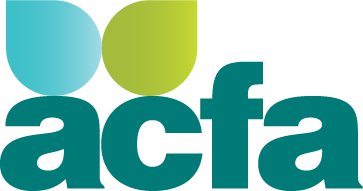CAI-Asia's mission is to promote better air quality and livable cities by translating knowledge to policies and actions that reduce air pollution and greenhouse gas emissions from transport, energy and other sectors. The NGO works on four core programs: air quality and climate change; low emissions urban development; clean fuels and vehicles; and, green freight and logistics.
After CAI-Asia celebrated its tenth year as a full-pledged organization last year, it plans to change its name to get its message across to a broader sector with greater clarity.
"We are trying to reach out more to private sector companies, where in the past we were very much donor-dependent. We are finding that in moving forward, we are going to need more private sector companies taking part in the solutions," said Sophie Punte, executive director. With the organization's new name, Clean Air Asia, people will immediately associate the organization to "what we are trying to do," she said.
CAI-Asia Partnership's flagship event, the Better Air Quality (BAQ) Conference, brings together about 600 practitioners, policy makers and the private sector. BAQ has been proven to shape policies, initiate new projects and establish partnerships. This year, it will be held in Hong Kong, from December 5-7, 2012.
"Hong Kong was a key starting point for us. We had our first Better Air Quality workshop with them in 2002, and that evolved into the Better Air Quality Conference. Now, we have a huge network of air quality professionals as well as policy decision makers at all levels of government," Punte said.
ACFA recently interviewed Punte, a Dutch national, to discuss the challenges that lay ahead for the organization.
Q: What do you think has been the greatest challenge for you? Is it as simple as language barrier or is it the politics of clean air or is it donor resistance?
A: Air quality has had a lot of competition with climate change. Donors tend to also have flavors of the day so air policy has never really been a hot topic. Luckily we are able to link clean air or air pollution with climate change. Of course it is not so hard.
Bringing air pollution on the priority agenda of development agencies and its countries, that has been a big challenge; and from donors, because climate change is more of a sexy global issue that everybody understands, it has lots of money attracted to it.
That's the realization with me is with the donors if you really want to do something on the ground to achieve reduction in greenhouse gas emission, air pollution is actually not a bad way to start, because it is less politicized. Air pollution is a local issue. The city--the polluted city--has to deal with its own air and in a way many mayors or local politicians can associate with air and the air we breathe and the public finds it a priority issue.
The concept of climate change when it comes down to the ground it's still very abstract. So, I find that the situation has changed. The realization has kicked in with the development agencies and the foundations that in order to address a lot of climate change issue, which is still very often their priority, we must look at what are the local levers to get this going and air pollution is the top one.
The second challenge that I have found is linking the research to practices. So there is a lot of research going on, such as health studies. But it is not such a clear cut case to link the research with policy making, Mostly because there are so many sources, it's really a challenge to have the objective quantified scientifically and state arguments to really support policy change. There is still a big gap between the research and policy making.
The third barrier is that we are donor-driven; we depend on funding, from whether it's with development banks, development agencies, bilateral agencies, foundations, and hopefully increasing in the future, private sector companies. The problem is that many of them want concrete results on the ground. They want to see how much CO2 are you reducing, how much emissions are you reducing. Our work focuses very much on the framework that is needed to support it—capacity, policy, institutional frameworks, etc., which is critical to get cleaner air but are harder to link to concrete on-the-ground emission reductions.
Donors and especially foundations are increasing the pressure to show bang for the buck. What is it concretely improving? And how do you measure that? We're building the capacity of cities to do these; we're helping them clean the planet.
In China we started with a small project on trucks, 10 trucks to look at which technologies would help them improve fuel efficiency and reduce emissions. Of course that's very tangible. People can see it. Now that's very well, but then if you only do pilot projects…you know how many trucks are in Guangdong alone? There are 1.8 million, so there is no way you are going to get to that scale.
Now what we then did is we helped design a program for China to capture everything that is needed to manage the fuels and emission from on-road trucks, that includes the policy institutions, partnerships that are needed, the knowledge capacities, the technologies and the financing and the logistics, so there are different solutions possible. Now we worked from the start of that pilot to the moment that the China Green Freight Initiative was launched -- it took three years and now we can accelerate. But getting the support for a national framework to essentially allow for scaling of a pilot project initiative, that is a challenge.
I like this sandwich approach of having some pilots on the ground and in parallel working on what institutional policy framework do you need at the top, at the national government level to make sure that those pilots don't hit a wall by the time they're finished.
For example, the Green Freight one, it was the right moment, because we went to speak to the Minister of Transport in China and it was at that time that they were just finalizing the 12th five-year plan, and with the 12th five-year plan, they had very aggressive targets for fuel efficiency improvements and carbon intensity reduction and we sort of happened to come to them and we had the right solution, so the match between what they were planning to do in a five-year plan and what we were looking at working with them just worked very well.
So you have the category of policy makers who really want to do something-- who really are there for the right reasons in the job and who see us working with them as an opportunity to fast track this agenda without feeling the threat right? Because, of course, working with NGOs especially in an environment like China is still a challenge.
Q: How many country networks do you have now?
A: We have eight country networks (China, India, Indonesia, Nepal, Pakistan, Philippines, Sri Lanka and Vietnam) and three offices (Manila, Beijing and Delhi). It is a combination of a regional network and an international network, because obviously several organizations from the west are also part of this. In combination with the country networks, we can have both an ear on the ground and understand what's happening at the local level and it provides for depth, and also brings certain issues to a more regional level.
For example, we are just now completing a three-year study with the World Bank on greenhouse gas air pollution indicators for transport and energy. Essentially this is a regional study because unless you are able to get uniform indicators across Asia, it is going to be very hard to move this forward. The more uniformity we are able to create the different countries can adapt (of course with their own need, because each country has different needs), the better. So what it allows you to do is, the moment you can streamline and harmonize--in this case indicators for Asia--the easier it will be for policies between those countries to be compared and then for those countries to help each other.
Q: So what are we going to look forward to in the next BAQ Conference?
A: It is exactly the message that I have just mentioned that air pollution is unhealthy, it's killing people, it's damaging our health, it's damaging our lives, and it is an unfinished business.
We cannot have livable cities in the future if you don't put clean air in the equation, impossible! That is really what is essential.
In Europe there is a set way of life and you know things are locked in. If you get Asia wrong, the world's lost. Asia needs to find its own solutions, you can look at what the U.S. or Europe or others have done to inspire you as an example but to copy-paste doesn't make sense.
Development plans for Asia will be different; we have more people, but also for sometimes very logical reasons like climate. Fuel quality standards, emission standards in Europe, where climates are colder, don't make sense in a tropical place like Manila. The cities in Europe are largely grown they are almost shrinking now.
In Asia, China is going to add 350 million people to its population in 20 years, in India, 250 million people. So you are going to get new cities, entirely new cities, and you are going to have cities like three Manilas being glued together because they're getting too close. So the situation and the conditions that Asia has to deal with are very different from that of Europe. You need solutions for Asia that are Asia-specific. Be inspired but do not sort of try and copy-paste…it is not going to work.





.svg)
.svg)
